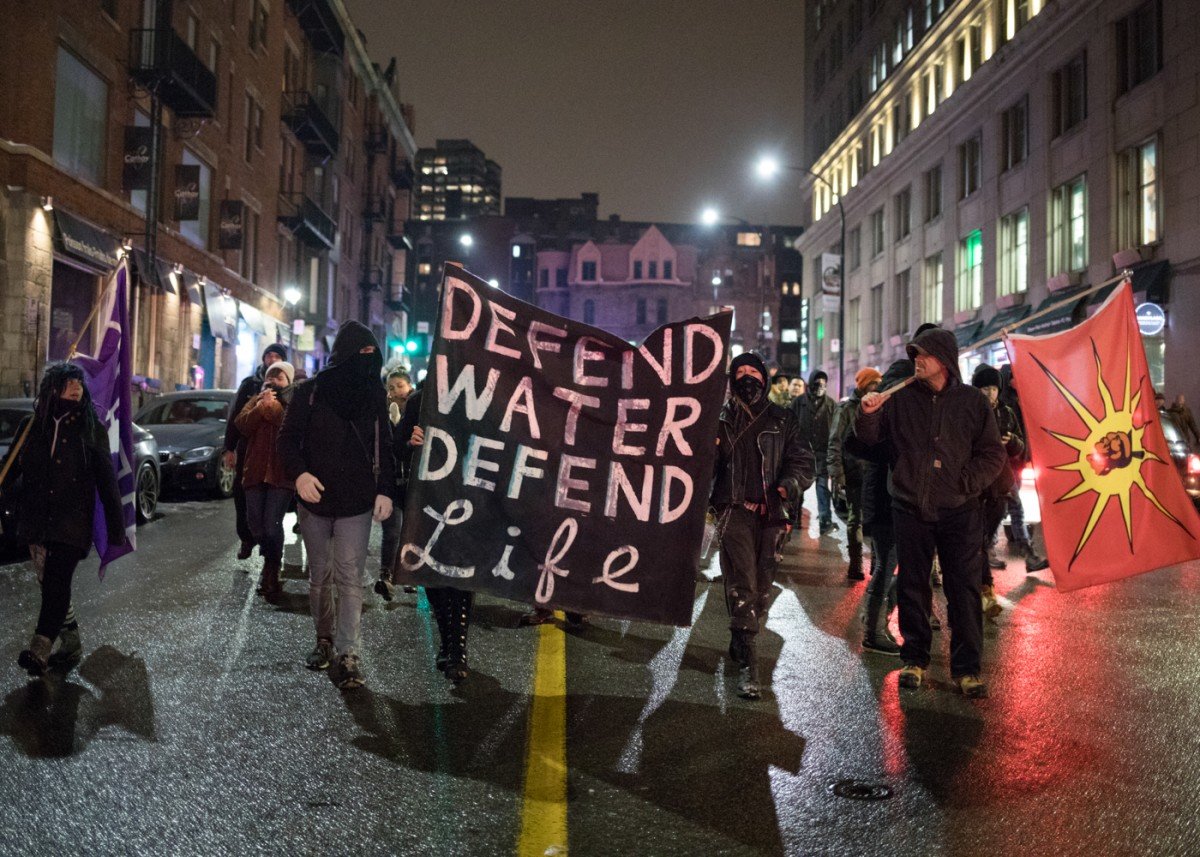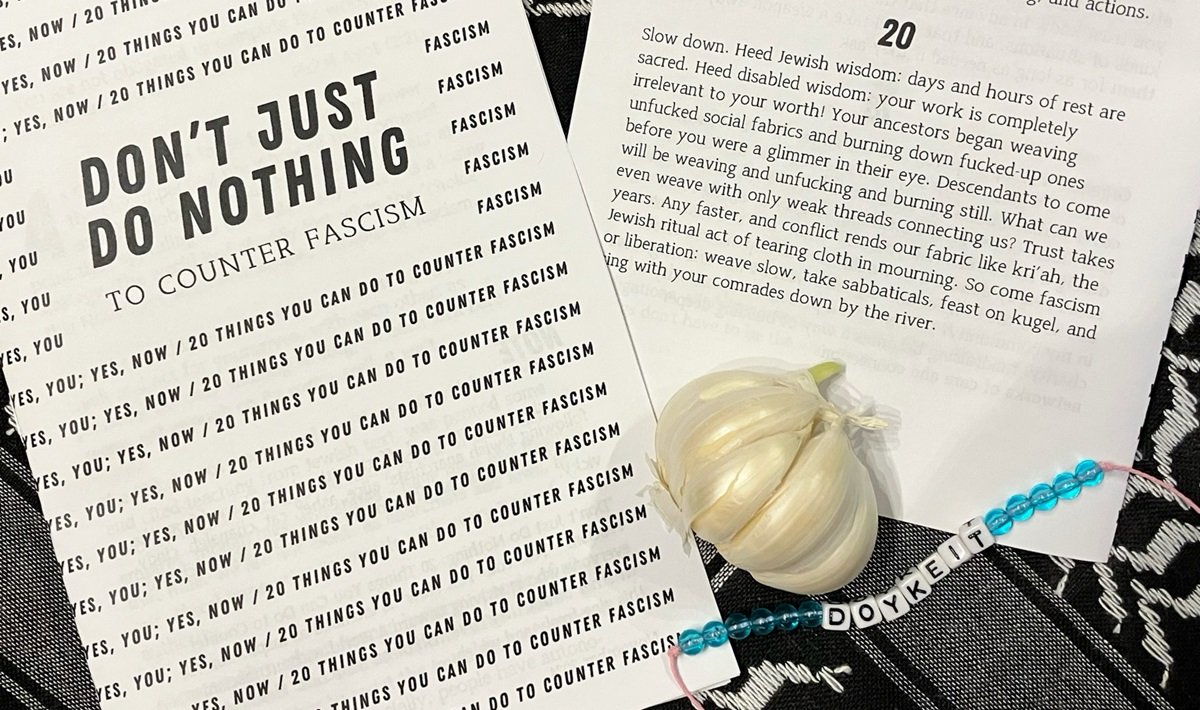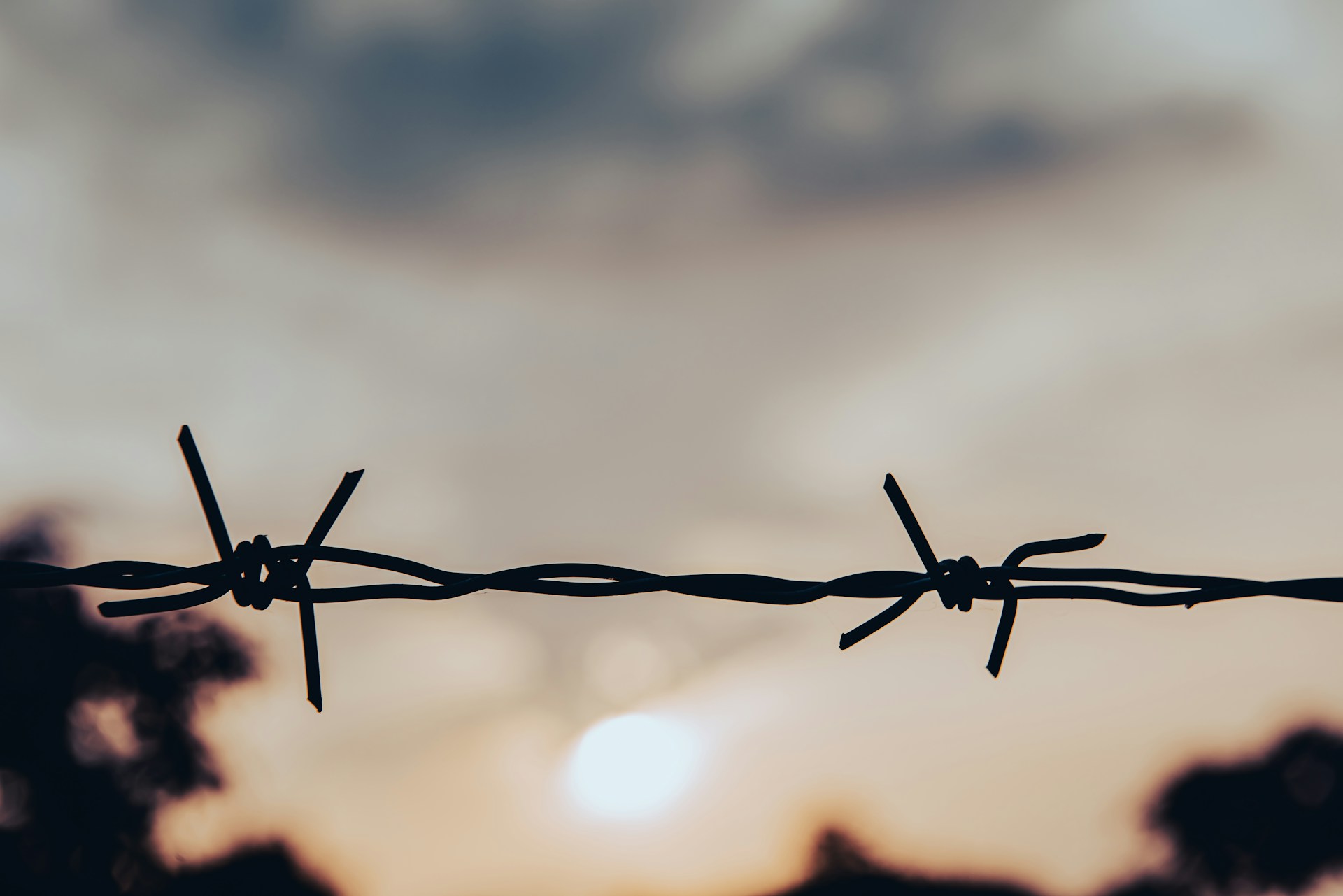Editorial from Abolitionist Media Worldwide about the need for anarchists to fight in solidarity with anti-colonial struggles.
In Canada, as is regrettably the case the world over, colonialism is more than a legacy— a painful past with which to be reckoned. It is alive and well, picking up where the Royal Proclamation of 1763 left off, as the State attempts to capture what lands remain in control of indigenous communities. The 1763 proclamation appeared to give indigenous people the option to cede their territory to the British via treaty; however, the British used coercive methods to negotiate these treaties and force native tribes to sign them. In this way, the State promoted the popular illusion that it had been given what it had in fact taken.
Even under such extreme duress, however, some indigenous communities opted not to sign any treaties in the years that followed and continued to assert their autonomy from the Canadian government. Fast forward to the 1990s, and we see a resurgence of latter’s initial efforts to ensnare the hold-outs: the BC Treaty Process. This process aims to “shrink the territorial title of a nation within hard borders” and “encourages the adoption of fee simple property rights, negating Indigenous difference rooted in non-Western concepts of land stewardship, rather than ownership.” As usual, these formalities are complemented by severe repression against anyone who resists, including violence, intimidation, and the destruction of land and homes.
Indigenous communities such as the Unist’ot’en and other Wet’suwet’en people have thus been reoccupying their territories in recent years, defending them against this latest imperialist onslaught. The Unist’ot’en was founded in 2010; since then, hundreds of people have visited, learned from, and contributed to the camp. This past January, the Unist’ot’en were forced at gunpoint to cede a checkpoint at the entrance to their unceded territory and, under the threat of continued violence, forced to make an agreement with the Royal Canadian Mounted Police (RCMP) to allow the removal of their entrance gate. Costal Gaslink has complained of traps set along its pipeline route causing delays in construction.
Aside from the importance of holding down their land from an indigenous, anti-colonial perspective, this reoccupation is also significant in that it has successfully stalled the construction of three major pipelines: Northern Gateway, Pacific Trails, and Coastal GasLink. (This overlap between indigenous rights and environmental stewardship within the anti-colonialist struggle is also playing out presently in other parts of the world, such as the United States, where the Standing Rock occupation against the Dakota Access Pipeline occurred a couple of years ago in North Dakota and indigenous-led resistance to the Mountain Valley Pipeline is taking place today in West Virginia and other parts of Appalachia.)
This June, the BC Supreme Court held hearings on the interim injunction filed by capitalist scum representing Coastal GasLink, a company that bulldozed through an Unist’ot’en trapline back in January and continues to make plans to install a camp of approximately 450 workers on unceded Unist’ot’en territory. A final ruling has not yet been made public, but the court is expected to rule in the company’s favor.
Revolutionary anarchists stand in solidarity with the Wet’suwet’en people, as well as indigenous communities around the world that must consistently defend themselves against oppression and occupation by imperialists. It is important to support these efforts both for their role in upholding indigenous autonomy, a form of anti-statehood; and for their role in preserving natural resources that capitalists would see bulldozed, polluted, or otherwise destroyed beyond recognition— with regard for neither the communities who currently rely on these resources nor future generations. By banning together, in the face of State and capitalist coercion, anarchists can protect one another and our planet.






